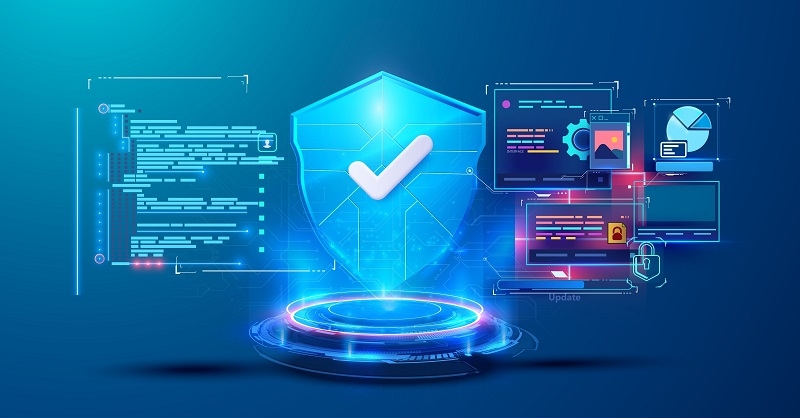
Imagine living in a world where every step leaves a digital footprint. Each search, every online purchase, and even a simple message leaves behind data. This information tells a story about who people are and what they do and that is exactly where data privacy and data security come into the picture.
These systems are all the time in the background to make sure that your personal details and activities are safe and secure.
In this blog, you will learn everything about data privacy and security, and understand how these terms differ from each other.
Privacy can be referred as the power to choose which personal information would you like to share and whom do you want to share it with.
On the other hand, security is all about safety as it protects your data from being stolen or misused. This is essential in this modern world because the risk of cyber attacks and online scams have increased massively.
Both privacy and security are interlinked and vital in 2025 because they protect you in various ways. Without one, the other cannot fully work because privacy gives you the control and security protects your data from harm.
In daily life, people use dozens of online services. Social media, shopping, banking, and even video streaming require personal details. With every click, there is a trade: information in exchange for access.
This is where online privacy and security come into play. Privacy gives people the right to choose what they share. Security makes sure no one can steal what is shared.
For example, entering a password to log in is a security step. Deciding whether to share a phone number on a social platform is a privacy choice. Together, they create a safe digital space.
It is not only individuals who must care about their information. Companies and groups also handle massive amounts of data every day. The security and privacy of data in organizations affect both customers and employees.
When a company collects customer details, it must ensure security systems protect them from hackers. At the same time, it must respect privacy by not sharing or selling this data without permission. If either is ignored, trust is broken.
This is why organizations treat data as one of their most valuable assets. Security stops attacks, while privacy keeps relationships built on respect and consent.
Data privacy is about control over information. It allows a person to decide how much of their personal life becomes visible. Privacy is not about hiding everything. It is about choosing what to reveal and what to protect.
For example, someone may be fine sharing their name but not their home address. Privacy gives them that choice. Without privacy, individuals lose control of their own identity.
While privacy is about choice, data security is about defense. It uses tools like passwords, encryption, and firewalls to block threats. Security is like a guard standing at the door, making sure no one unwanted gets in.
For example, when making an online payment, security ensures the card details are not stolen. If someone tries to attack, strong security prevents the loss. Without it, private data is left open to harm.

The difference between data security and privacy is simple. Security is about protecting the data itself, while privacy is about protecting the person behind the data.
Data security focuses on protecting the information itself. It ensures that data is safe from hackers, leaks, or any kind of attack. Data privacy, on the other hand, focuses on the individual. It works to protect your personal info from being misused or leaked.
The main purpose of data security is safety. It stops outsiders from stealing or damaging information. The purpose of data privacy is control. It allows people to decide how much of their personal data should be shared and with whom.
Data security uses tools like strong passwords, firewalls, and encryption to defend information. These methods work like locks on a door. Data privacy uses policies, rights, and choices to give people control. It is like deciding who should be given the key to that door.
Without data security, personal details can be stolen, damaged, or exposed to attackers. Without data privacy, information can still be misused or shared without permission, even if it is secure. Both missing pieces create serious risks.
Data security is about defense and data privacy is about control. Together, they complete each other. One without the other leaves gaps, but both working side by side create true safety in the digital world.
To understand privacy vs security, think about daily habits. Privacy means choosing what details to post online. Security means trusting that systems like passwords and locks will keep those details safe.
From a human point of view, privacy feels personal because it is about the control you’re your identity. Security feels protective as it is about creating a safe environment. Both together create peace of mind in a world filled with data sharing.
Everyone can take small steps to improve privacy and security in daily life. These steps are simple but powerful:
These actions create a safer environment for both data privacy and data security.
In today’s connected world, data privacy and data security cannot be ignored. Privacy protects people’s right to control their personal information. Security protects that information from attacks and theft. Both are needed to create a safe digital life.
By following simple steps like strong passwords, careful sharing, and using privacy settings, individuals can protect themselves. In the end, privacy gives control, security gives protection, and t
This content was created by AI